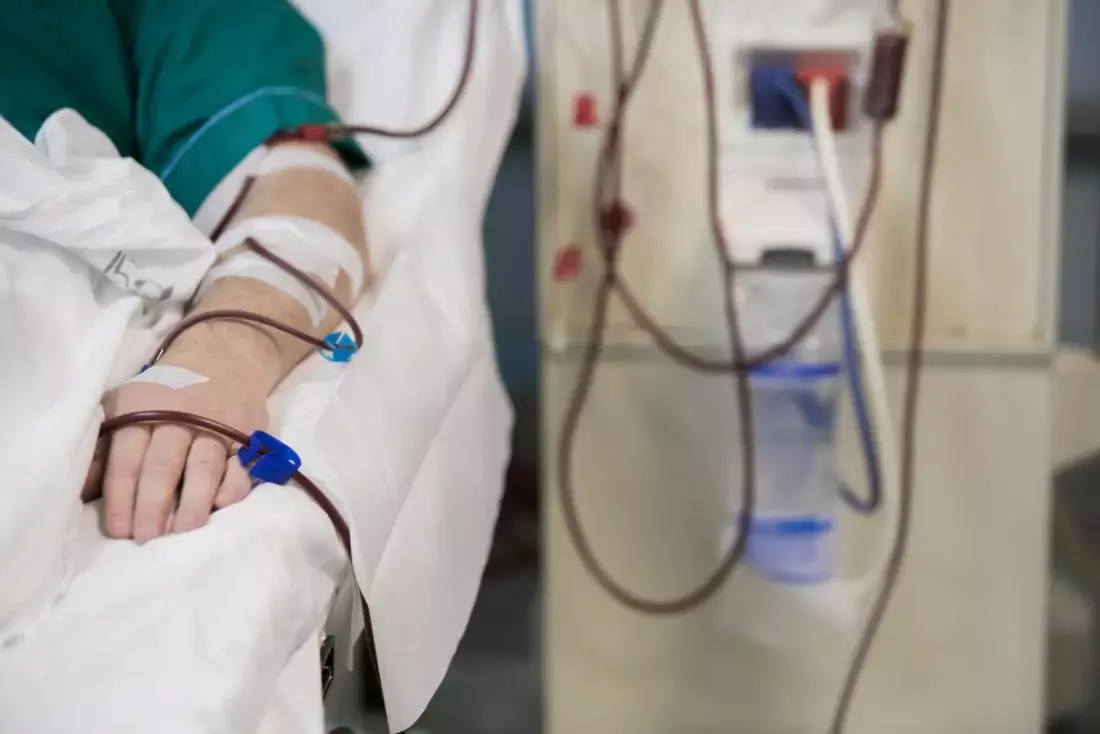- Home
- Medical news & Guidelines
- Anesthesiology
- Cardiology and CTVS
- Critical Care
- Dentistry
- Dermatology
- Diabetes and Endocrinology
- ENT
- Gastroenterology
- Medicine
- Nephrology
- Neurology
- Obstretics-Gynaecology
- Oncology
- Ophthalmology
- Orthopaedics
- Pediatrics-Neonatology
- Psychiatry
- Pulmonology
- Radiology
- Surgery
- Urology
- Laboratory Medicine
- Diet
- Nursing
- Paramedical
- Physiotherapy
- Health news
- Fact Check
- Bone Health Fact Check
- Brain Health Fact Check
- Cancer Related Fact Check
- Child Care Fact Check
- Dental and oral health fact check
- Diabetes and metabolic health fact check
- Diet and Nutrition Fact Check
- Eye and ENT Care Fact Check
- Fitness fact check
- Gut health fact check
- Heart health fact check
- Kidney health fact check
- Medical education fact check
- Men's health fact check
- Respiratory fact check
- Skin and hair care fact check
- Vaccine and Immunization fact check
- Women's health fact check
- AYUSH
- State News
- Andaman and Nicobar Islands
- Andhra Pradesh
- Arunachal Pradesh
- Assam
- Bihar
- Chandigarh
- Chattisgarh
- Dadra and Nagar Haveli
- Daman and Diu
- Delhi
- Goa
- Gujarat
- Haryana
- Himachal Pradesh
- Jammu & Kashmir
- Jharkhand
- Karnataka
- Kerala
- Ladakh
- Lakshadweep
- Madhya Pradesh
- Maharashtra
- Manipur
- Meghalaya
- Mizoram
- Nagaland
- Odisha
- Puducherry
- Punjab
- Rajasthan
- Sikkim
- Tamil Nadu
- Telangana
- Tripura
- Uttar Pradesh
- Uttrakhand
- West Bengal
- Medical Education
- Industry
Higher frailty may delay vascular access maturation in dialysis Patients

California: In a study led by Karen Woo, it was shown that longer durations to vascular access functional usage are connected with higher levels of frailty. Frailty may be valuable in guiding clinical decision-making about vascular access. The findings of this study were published in the American Journal of Kidney Diseases.
Despite the fact that frailty is common among dialysis patients, it is uncertain if frailty is linked to dialysis vascular access failure. This study looked at the relationship between frailty and functional utilization of vascular access.
Patients who began hemodialysis with a tunneled catheter in the US Renal Data System database between 2012 and 2017 and underwent later development of an arteriovenous fistula or graft were included in this Retrospective observational research. Patients who began hemodialysis with a tunneled catheter in the US Renal Data System database between 2012 and 2017 and had later arteriovenous fistula or graft formation. Period to functional usage for fistulas and grafts is defined as the time between starting hemodialysis and starting treatments with the index vascular access with two needles. Fine and Gray competing risk models looked at fistula and graft outcomes independently. Cox proportional hazards regression was used to estimate patient survival across the full cohort.
The findings of this study were as follow:
1. A total of 41,471 patients satisfied the inclusion criteria, with 33,212 undergoing fistula development and 8,259 undergoing graft implantation.
2. Higher CFI quartiles were related to a higher death rate. When compared to patients in the lowest CFI quartile, those in the highest CFI quartile had more than double the rate of death (hazard ratio [HR], 2.49).
3. In multivariable analysis, the highest CFI quartile was related to a longer time to the functional use of fistulas (HR, 0.65) and grafts (HR, 0.88).
In conclusion, frailty may be valuable in guiding clinical decision-making about vascular access.
Reference:
Woo K, Gascue L, Norris K, Lin E. Patient Frailty and Functional Use of Hemodialysis Vascular Access: A Retrospective Study of the US Renal Data System. Am J Kidney Dis. 2021 Dec 11:S0272-6386(21)01021-0. doi:10.1053/j.ajkd.2021.10.011. Epub ahead of print. PMID: 34906627.
Medical Dialogues consists of a team of passionate medical/scientific writers, led by doctors and healthcare researchers. Our team efforts to bring you updated and timely news about the important happenings of the medical and healthcare sector. Our editorial team can be reached at editorial@medicaldialogues.in.
Dr Kamal Kant Kohli-MBBS, DTCD- a chest specialist with more than 30 years of practice and a flair for writing clinical articles, Dr Kamal Kant Kohli joined Medical Dialogues as a Chief Editor of Medical News. Besides writing articles, as an editor, he proofreads and verifies all the medical content published on Medical Dialogues including those coming from journals, studies,medical conferences,guidelines etc. Email: drkohli@medicaldialogues.in. Contact no. 011-43720751


